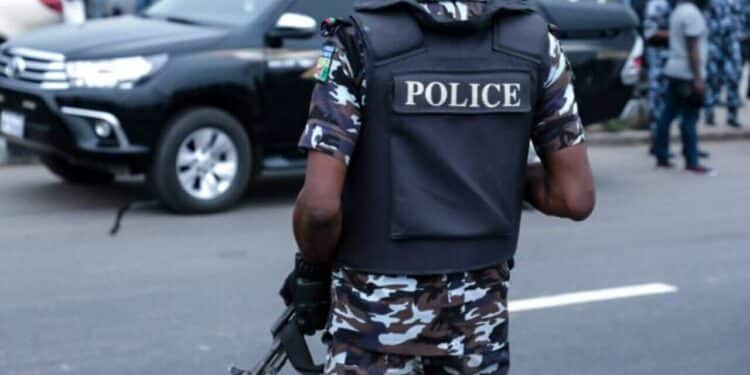*OF TINTED GLASS, NIGERIA POLICE AND THE LAW
By Ebun-Olu Adegboruwa, SAN
INTRODUCTION
The Nigeria Police Force is in the news again, for the enforcement of the ban against tinted or shaded glasses in motor cars.
On April 25, 2025, the police announced its intention to compel the procurement of a written permit on all cars with tinted glasses.
Although no cogent reason has been proferred for the implementation of this policy inherited as part of the military invasion of our political space, it would seem from all indications that the goal is that of revenue generation.
The challenge with this is that Nigerians have been taxed and overtaxed and if the rationale behind the current tax reform laws is to harmonize all taxes, then there has to be a rethink of this policy by the police.
THE LAW AGAINST TINTED OR SHADED MOTOR GLASSES
On 8th February 1991, the federal military regime of General Ibrahim Babangida (Retd) enacted the Motor Vehicles (Prohibition of Tinted Glass) Decree 1991, in the following terms:
“The Federal Military Government hereby decrees as follows:
1. (1) Except with the permission of the appropriate authority designated for the purposes of this Decree and for such good cause as may be determined from time to time by the appropriate authority, no person shall cause any glass fitted on a motor vehicle to be-
(a) tinted; or (b) shaded; or (c) coloured lightly or thickly (d) darkened; or (e) treated in any other way,
so that the persons or objects in the motor vehicle are rendered obscure or invisible.
(2) In this section, “good cause” means health or security reasons.
2. (l) Notwithstanding anything to the contrary contained in any law, rule of law, enactment or the Constitution of the Federal Republic of Nigeria 1979, as amended, any person who without the permission of the appropriate authority-
(a) causes any glass fitted on a motor vehicle to be treated in any manner specified in section 1(1) of this Decree
(b) does or omits to do any act for the purpose of enabling or aiding another person to tint, shade, colour, darken, or treat in any other way any glass fitted on a motor vehicle in any manner specified in section 1(1) of this Decree
(c) aids another person in tinting, shading, colouring, darkening or treating in any other way any glass fitted on a motor vehicle in any manner specified in section 1(1) of this Decree ; or
(d) counsels or procures any other person to tint, shade, colour, darken or treat in any other way, any glass fitted on a motor vehicle, commits an offence under this Decree and shall be punished in the manner set out in this Decree.
(2) Any person who commits an offence under paragraph (d) of subsection (1) of this section may himself be charged with tinting, shading, colouring, darkening or treating in any other way the glass fitted on the motor vehicle or with counselling or procuring the tinting, shading, colouring, darkening or treating in any other way the glass fitted on the motor vehicle.
(3) In this Decree –
(a) reference to the “appropriate authority” means reference to the Inspector-General of Police or any person or authority authorised by him to give such permission as is contemplated in subsection (1) of section 1 of this Decree
(b) reference to “permission” includes registration.
3. It shall be the duty of the buyer, donee or importer of a motor vehicle with tinted, shaded, coloured, darkened or treated glass to change all the glass within a period of 14 days from the date of arrival in Nigeria or date of purchase (whichever is applicable in each circumstance).
4. (1) Any person who commits an offence under this Decree shall on conviction be liable to a fine of N2,000 or to imprisonment for a term not exceeding 6 months or to both such fine and imprisonment.
(2) Where an offence under this Decree has been committed by a body corporate, every person who at the time of the commission of the offence was a proprietor, director, general manager, secretary or other similar officer servant or agent of the body corporate (or a person purporting to act in any such capacity) as well as the body Corporate shall be guilty of the offence and may be proceeded against and punished accordingly.
5. The Federal High Court shall have jurisdiction to try offenders under this Decree.”
WHY THE POLICY IS WRONG
Understandably so, Nigerians have kicked against the enforcement of this law on so many grounds. First, it is not reasonably justifiable. The cars in issue were not manufactured in Nigeria and the owners have no control over the specification or mode of the car. To enforce such a blanket ban, the government must have a ready alternative which it can offer to its citizens. Second, these cars are driven freely in other parts of the world without the need for a permit. Third, if the ban on tinted or shaded motor glasses is that of security, all that the police need to do is to ask the motorist to wind down his glasses for random security check.
THE COURT CASES
The Nigerian Bar Association has challenged the enforcement of this policy in court in Abuja and the police was duly served with the originating processes in the suit but it claimed that since there is no positive order from the Court, the enforcement will proceed notwithstanding the court case. Subsequently on October 2, 2025, the Federal High Court in Warri issued an order, directing the police to show cause why an order of injunction should not be made to stop the enforcement of the policy. There has been some controversy on the purport and effect of the order of court for the police to show cause. Let me dwell on this a little more.
Under and by virtue of Order 26 Rule 8 of Federal High Court (Civil Procedure) Rules, 2019:
“2. Where a motion is made ex-parte, the Court may make or refuse to make the order sought, or may direct the motion to be made on notice to the parties to be affected thereby or may grant an order to show cause why the order sought should not be made.
C— ORDER TO SHOW CAUSE
13. An order to show cause shall specify a day when cause is to be shown, be called the return day to the order, which shall ordinarily be not less than three days after service.
14. A person served with an order to show cause may, before the return day, produce evidence to contradict the evidence used in obtaining the order, or setting forth other facts on which he relies to satisfy the Court to discharge or vary such order.
15. On the return day, if the person served does not appear and it appears to the Court that the service on all proper parties has not been duly effected, the Court may enlarge the time and direct further service or make such further order as seems just.
(b) if any other relief is sought, the Judge may at any time grant in the proceedings such interim relief as could be granted in an action begun by writ;
(c) the Judge may impose such terms as to costs and as to giving security as he deems fit.”
WHY THE POLICY MUST BE HALTED FORTHWITH
In law, an order for a party to show cause why an injunction should not be made is a preliminary court order that puts the respondent on notice to demonstrate why they should not be restrained by an injunction. The effect is that it requires the respondent to argue against the grant of the injunction, and if they fail, the court may issue the injunction based on the applicant’s argument. The party to whom the order is directed has the duty to show cause, or present reasons, why the injunction should not be granted, and this may involve demonstrating that they have a sufficient legal remedy or that the balance of convenience does not favour the applicant. The legal effect of the order is that the respondent is obligated to appear before the court and argue their case against the injunction being granted. The burden of proof rests heavily on the applicant for the injunction to show that a serious issue to be tried exists and that damages will be inadequate compensation. However, if the respondent fails to show cause, this failure will strengthen the applicant’s case for the injunction. The court’s order serves as a formal notice to the respondent about the potential injunction and allows them to be heard on the matter. The order aims to maintain the current state of affairs (status quo) while the court considers the application for injunction. If the respondent fails to show cause or provides insufficient reasons against the injunction, the court can proceed to grant the injunction. And even when no positive order of injunction has been made, the respondent is required to keep matters in status quo because the court will not aid a party who is guilty of taking steps to jeopardize the subject matter of the application for injunction. In the case of John Aikpkokpo-Martins however, the court specifically directed the police to maintain the status quo, effectively halting the implementation or further implementation of the policy, pending the hearing and determination of the application for injunction. As the police are established to maintain law and order and to enforce decisions of the court, the policy on tinted motor glass permits should be suspended for now.


























